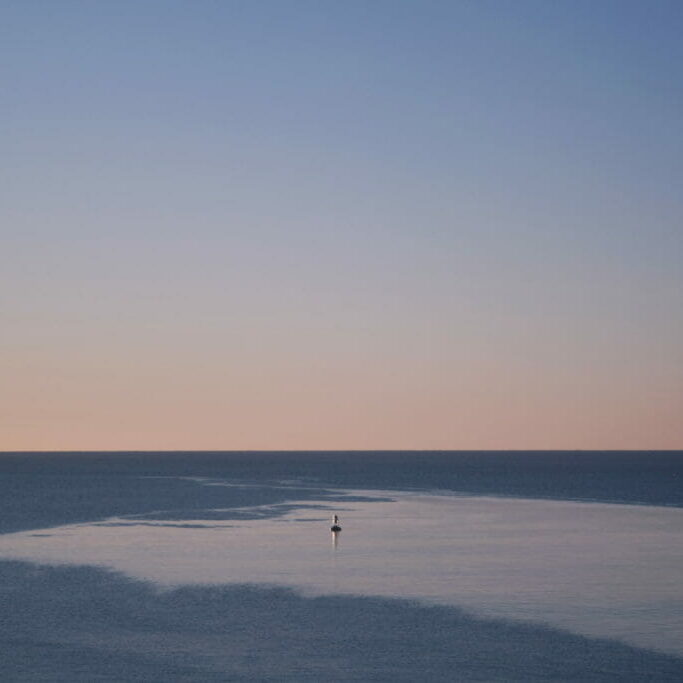
Ocean conservation can’t just be a fanta-sea
Dal can and should be doing more to protect our oceans
Every year billions of tonnes of carbon dioxide are pumped into the atmosphere. Absorbed by the ocean, it increases ocean acidification and warming. Critical marine habitat for endangered species is destroyed in the name of development. Toxic contaminants are dumped into the ocean, killing coastal marine plants and shellfish.
As a species, we’re doing a terrible job taking care of one of our main life support systems. Addressing these problems will require massive international co-operation. So, what can we, as a university, do to protect our oceans?
Dalhousie: a hub for ocean research
Dalhousie University is a massive centre for ocean research and innovation. There are dozens of educated scientists with articles published in renowned scientific journals and laboratories hidden away in the Ocean Sciences Building. Sadly, their knowledge rarely leaves the consecrated walls of the school to reach the public in ways they can understand. Which is a shame, as many people in the world have no idea that our survival depends on the ocean and making informed decisions to protect it.
Dr. Anna Metaxas, a professor in the department of oceanography at Dalhousie, said: “At the end of the day, the public makes the decisions. And an uneducated public is not going to support the oceans.”
As an institution, Dalhousie can do a better job of supporting ocean education initiatives. Take Ocean School, for instance. Ocean School is an ocean literacy program led by Dalhousie scientist Boris Worm to create educational resources focused on the ocean. As Metaxas said, “getting into the schools is probably the most effective way to [achieve] change”.
To do that, we must move beyond publishing articles that sound like gibberish to people who don’t read scientific literature every day. We need to allocate more money and support for programs like Ocean School, that take complicated information and make it exciting and engaging for everyone. Teachers will have an easier time instilling a passion for the ocean in students, which is crucial in a generation of leaders emerging into the climate crisis in full swing. Until they feel passionate about it, they won’t protect it. After all, and according to Metaxas, children’s education is “where the future lies.”
Step up, students
Dalhousie students can also step up the action in their own way. For instance, activism and advocacy are valuable ways of educating the public and are easy for students to become involved in. One issue students like to advocate for is ocean plastics. Everywhere you look on the internet there’s a video of a turtle with a straw up its nose, or a bird stuffing itself on a tasty plastic dinner.
While their hearts are in the right place, a lot of the attention drawn to ocean plastics is a convenient distraction from more critical environmental problems. As noted by Metaxas, plastics are a big problem — one that’s rooted in consumerism and materialism, which is an entirely different ballpark. But at the end of the day, reducing the amount of plastic in the ocean is not going to limit global warming to 1.5 degrees Celsius. Metaxas said “the overarching problem is biodiversity loss” which, paired with climate change, will have a much larger effect on the ocean in the coming years.
The government also seems to be focused on addressing ocean plastics, because action on their part is attractive, low effort, and looks good to voters. Take Justin Trudeau’s single-use plastics ban. It addresses ocean conservation in the shallowest sense: trying to prevent more single-use plastics from ending up in the ocean. However, a study from Nature has shown only about 6.5 per cent of macroplastics in the ocean (by weight) is made up of bottles, bags and other single-use plastics. Compared to the 70 per cent that originates from discarded fishing gear, this isn’t much. In other words, the ban will have an infinitesimally small impact on preventing more plastic from entering the ocean. On the other hand, direct action like imposing a heavier carbon tax to cut emissions could cause a riot among voters. And nobody wants that.
Climate Disaster
We are on the brink of a climate disaster. We have no idea what the next 10 years will look like. So how can Dalhousie do more? How can students of Dalhousie do more for our oceans?
We can start with education. Dalhousie can inspire a love for the ocean in current and future generations of Canadians. We can show people that the critical issues, like climate change and biodiversity loss, can’t be solved by plastic bans, metal straws and tote bags. Only when people love something enough are they willing to make the life changing sacrifices necessary to save it.
If we as individuals fail to recognize this, and if institutions like Dal sit back and watch from the sidelines, there will be no change. And if we fail to massively reform the way we live, the oceans will lose their capacity to support life; including ours.






